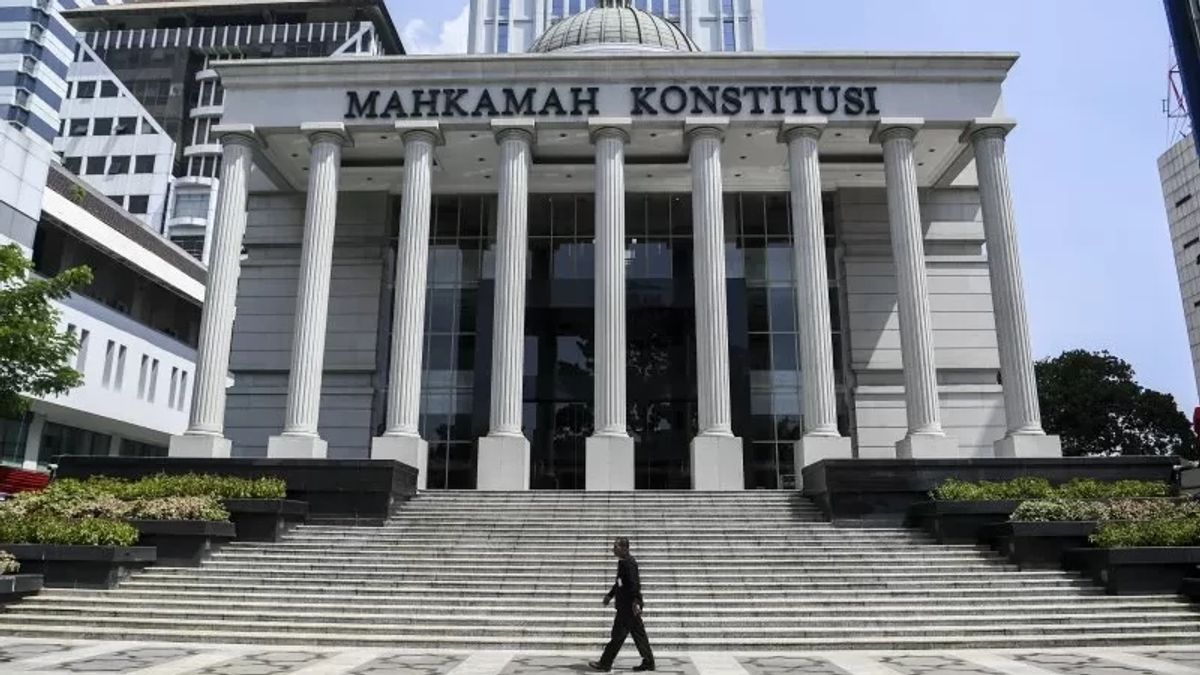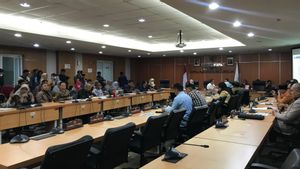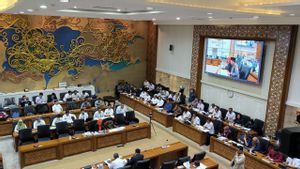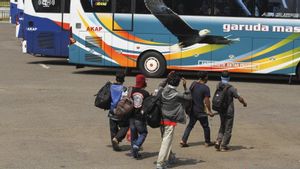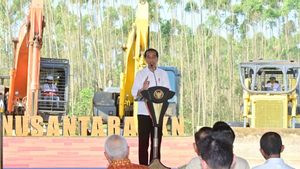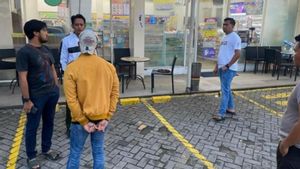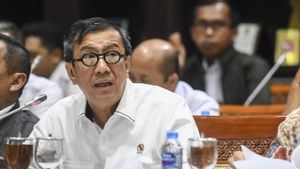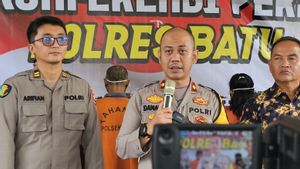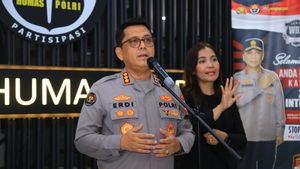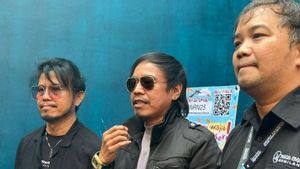JAKARTA - Chairman of the Honorary Council of the Constitutional Court (MKMK) I Dewa Gede Palguna emphasized that the preliminary examination and follow-up examination stages in the trial at the Constitutional Court were held behind closed doors.
"Because the Constitutional Court Regulation said so. Everything was closed. The preliminary hearing was held behind closed doors, the follow-up examination was carried out behind closed doors," Palguna said when met at Building II of the Constitutional Court, Central Jakarta, Friday.
Palguna made this statement in response to the media crew's question about the preliminary examination of the complainant regarding the alleged violation of ethics which was held behind closed doors on Friday. Meanwhile, the trial for the examination of the reporter under the previous Chief Justice of the MKMK, Jimly Asshidique, was held openly.
Palguna said the previous MKMK trial which was held openly violated the regulations, but had certain considerations.
"But Prof. Jimly also has the right consideration in my opinion. If it's just a reporter, there's no interest, it's okay to be open. If the reported party, then (the trial) is closed. That's what he said," he explained.
In addition, added Palguna, at that time there was a big condition that required the MKMK trial to be conducted openly, namely great attention from the public.
"The public's curiosity is at a high level. It doesn't mean it's not important now, but in my opinion, the need is not that urgent so we go back (follow) to PMK," he said.
SEE ALSO:
Based on his personal experience, Palguna said the trial was closed so that the reporting party could speak freely compared to if the trial was held openly.
"If he is covered up, he can be vulgar because he can know. If it is open, there will be a thought 'wah can be like this if I talk like this.' So, there are pluses and minuses," he said.
Based on Constitutional Court Regulation Number 1 of 2023 concerning the Honorary Council of the Constitutional Court, it is stated that several stages of the trial process are held behind closed doors.
In Article 26 Paragraph 1 of PMK there are norms that state a closed preliminary examination. Then in Article 28 Paragraph 1 it is stated that further examination is carried out in a closed plenary session.
Then, in Article 37 Paragraph 1, the Honorary Council Meeting which took the decision on the discussion of the results of the preliminary examination, the discussion of the results of the follow-up examination, as well as the discussion and preparation of the decision of the honorary assembly, was carried out behind closed doors.
The English, Chinese, Japanese, Arabic, and French versions are automatically generated by the AI. So there may still be inaccuracies in translating, please always see Indonesian as our main language. (system supported by DigitalSiber.id)
